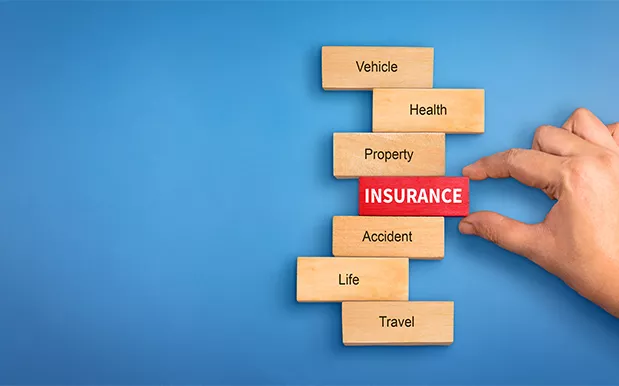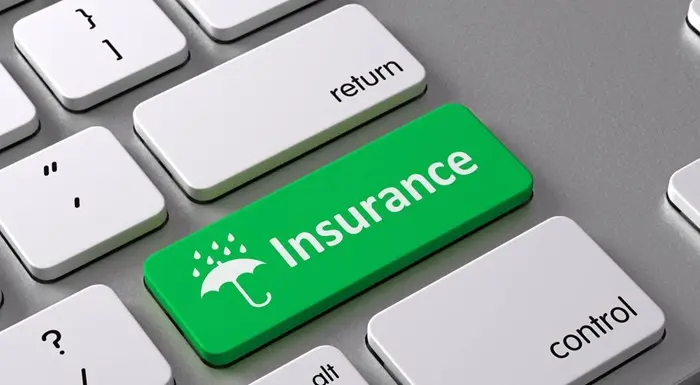Running a business is an exciting and challenging endeavor. You pour your time, energy, and resources into building something that you hope will thrive and succeed. However, along the way, there are numerous risks that can threaten the stability and even the survival of your business. That’s where business insurance comes in. Business insurance is like a safety net that can protect your business from a wide variety of unexpected events. Whether you have a small local shop, a growing startup, or an established company, having the right business insurance is essential. In this article, we’ll explore in detail why you need business insurance and how it can safeguard your business in different aspects.
Protecting Against Property Damage
1. Damage to Business Premises
Your business premises are a crucial asset. It could be an office building, a storefront, a factory, or a warehouse. Natural disasters like fires, floods, earthquakes, or storms can cause significant damage to these properties. For example, a fire could break out in your office and destroy all the furniture, electronics, and important documents. Without insurance, you’d have to bear the entire cost of repairing or rebuilding the premises and replacing all the damaged items on your own.
Business property insurance can cover the cost of repairing or rebuilding your business premises. If the fire damage is estimated at $100,000 for repairs and you have appropriate property insurance with sufficient coverage limits, the insurance company will pay for those repairs, minus any deductible you’ve agreed to. This way, you can get your business back up and running without facing a huge financial burden that might otherwise put you out of business.
2. Damage to Business Equipment
Businesses rely on various types of equipment, from computers and printers in an office to heavy machinery in a manufacturing setting. This equipment can also be damaged due to accidents, mechanical failures, or other unforeseen events.
Let’s say you run a printing business and your expensive printing presses break down due to a power surge. The cost of repairing or replacing them could be tens of thousands of dollars. With equipment insurance, which is often part of a business property insurance policy, the insurance company will cover these costs. They’ll either pay for the repairs to get the equipment working again or provide funds to replace it if it’s beyond repair. This ensures that your business operations can continue smoothly without having to come up with a large sum of money from your own pocket to fix or replace the essential equipment.
3. Inventory Loss
For businesses that deal with inventory, like retailers or wholesalers, protecting that inventory is vital. There are many situations that can lead to inventory loss. It could be due to theft, where burglars break into your store and steal your products. Or perhaps a water pipe bursts in your warehouse and damages a large portion of your stock.
If you have business insurance that covers inventory, the insurance company will compensate you for the value of the lost or damaged inventory. For instance, if $20,000 worth of goods are stolen from your store and your insurance policy has inventory coverage, you’ll receive payment to help you restock your shelves. This helps you maintain your business’s ability to serve customers and avoid losing sales because of a lack of available products.
Liability Protection
1. General Liability
General liability insurance is one of the most important types of business insurance. It protects your business if someone gets injured on your business premises or if your business causes damage to someone else’s property. For example, if a customer slips and falls on a wet floor in your store and breaks their leg, they may sue your business for medical expenses, lost wages, and pain and suffering.
Your general liability insurance will cover the costs associated with such a lawsuit, up to the policy limits. If the total damages claimed by the injured customer amount to $50,000 and your policy has a limit of $100,000 for bodily injury claims, the insurance company will handle the payment, saving you from having to pay a large sum out of your own funds. This coverage also applies if your business accidentally damages a neighboring property, like if your delivery truck hits a fence while making a delivery.
2. Product Liability
If your business manufactures, sells, or distributes products, product liability insurance is crucial. There’s always a risk that a product you sell could be defective and cause harm to a consumer. For example, if you sell a children’s toy that has small parts that can be a choking hazard and a child gets hurt as a result, the parents might sue your business.
Product liability insurance will cover the costs of legal defense and any damages that your business is found liable for. The costs can be extremely high, including medical bills for the injured person, compensation for pain and suffering, and even potential recall costs if the product needs to be taken off the market. Having this insurance protects your business from the financial fallout of such product-related incidents and helps maintain your reputation in the marketplace.
3. Professional Liability
Certain businesses that provide professional services, like doctors, lawyers, accountants, or consultants, need professional liability insurance, also known as errors and omissions insurance. If a client claims that you made a mistake or failed to provide the expected level of service and as a result suffered financial losses, they could sue you.
For instance, if an accountant makes an error in a client’s tax return that leads to the client having to pay additional taxes and penalties, the client might hold the accountant responsible. Professional liability insurance will cover the costs of defending against such claims and any damages awarded to the client if the claim is upheld. This insurance is essential for safeguarding your professional reputation and your business’s financial stability in case of such professional errors.
Business Interruption Coverage
1. Disruptions Due to Natural Disasters
Natural disasters can not only damage your business property but also disrupt your operations. For example, if a hurricane hits your area and your business is forced to close for several weeks while you repair the damage to your premises, you’ll still have ongoing expenses like rent, employee salaries, and loan payments, but you won’t be generating any income during that time.
Business interruption coverage kicks in to help cover these ongoing expenses and make up for the lost income. If your business normally makes $10,000 a week in revenue and is closed for three weeks due to a disaster, and you have business interruption insurance, the insurance company will provide funds to cover a portion of that lost income, allowing you to keep up with your financial obligations and stay afloat until you can reopen and resume normal operations.
2. Disruptions Due to Other Unforeseen Events
There are other events that can interrupt your business operations too, like a major fire in a nearby building that forces your business to close temporarily because of safety concerns or a power outage that lasts for an extended period. Business interruption insurance also covers these types of situations.
It helps ensure that you can continue to pay your employees, keep your business location leased, and meet other financial commitments even when you can’t operate as usual. This coverage gives you the breathing room you need to get your business back on track without having to worry about running out of money during the disruption period.
Employee-Related Coverage
1. Workers’ Compensation
If you have employees, workers’ compensation insurance is usually required by law in most places. This insurance covers the medical expenses and a portion of the lost wages for employees who are injured or become ill on the job. For example, if an employee in your construction company falls from a scaffold and breaks their arm, workers’ compensation will pay for their hospital visits, doctor’s fees, and a percentage of their salary while they’re unable to work.
It not only helps the injured employee get the care they need but also protects your business from potential lawsuits by the employee. Without workers’ compensation, the employee might sue you for damages related to their injury, which could result in significant legal costs and financial liabilities for your business.
2. Group Health Insurance
Offering group health insurance to your employees can be a great way to attract and retain talented staff. It shows that you care about their well-being and can give your business a competitive edge in the job market. While it’s not always mandatory, many businesses choose to provide it.
Group health insurance helps your employees cover the costs of medical care for themselves and their families. This can include doctor visits, hospital stays, prescription medications, and more. By providing this insurance, you’re enhancing the overall quality of life for your employees and creating a more positive work environment, which in turn can lead to higher productivity and loyalty among your workforce.
3. Disability Insurance
Disability insurance for employees protects them in case they become unable to work due to a long-term illness or injury. It provides them with a portion of their income during the period when they can’t perform their job duties.
For your business, having disability insurance in place can also be beneficial as it helps maintain stability in your workforce. If an important employee becomes disabled, you won’t have to scramble to find a replacement right away, and the employee will have some financial support while they try to recover or adjust to their new situation.
Protecting Your Business’s Reputation
1. Crisis Management and Public Relations Coverage
In today’s digital age, a business’s reputation can be damaged quickly by negative publicity. It could be due to a customer complaint that goes viral on social media or a news story about an incident involving your business. Crisis management and public relations coverage as part of your business insurance can help you handle these situations.
The insurance company will provide funds for hiring public relations experts to manage the crisis, create a response strategy, and work to repair your business’s reputation. For example, if there’s a false rumor spreading online that your restaurant has food safety issues, having this coverage allows you to take immediate action to address the rumor and protect your brand image, which is crucial for maintaining customer trust and continued business success.
2. Cyber Liability
With more and more businesses operating online and storing customer data, cyber risks are a major concern. A cyber-attack could lead to a data breach where customer information like credit card numbers, addresses, or social security numbers are stolen. This can severely damage your business’s reputation and lead to costly legal consequences if customers’ privacy is violated.
Cyber liability insurance helps cover the costs associated with responding to a data breach, such as notifying customers, providing credit monitoring services, and dealing with any legal claims from affected individuals. It also helps pay for the costs of strengthening your business’s cybersecurity measures to prevent future attacks. By having this insurance, you’re better prepared to handle the fallout from a cyber incident and protect your business’s good name.
Conclusion
Business insurance is not a luxury but a necessity for any business, regardless of its size or industry. It protects your business from a wide range of risks, from property damage and liability issues to business interruptions, employee-related concerns, and reputation damage. By investing in the right business insurance policies, you’re creating a safety net that can help your business survive and thrive in the face of unexpected events. It gives you the peace of mind to focus on growing your business and achieving your goals, knowing that you have financial protection in place when things don’t go as planned. So, whether you’re just starting out or have been in business for years, carefully considering and obtaining the appropriate business insurance should be a top priority.
Related topics:


































